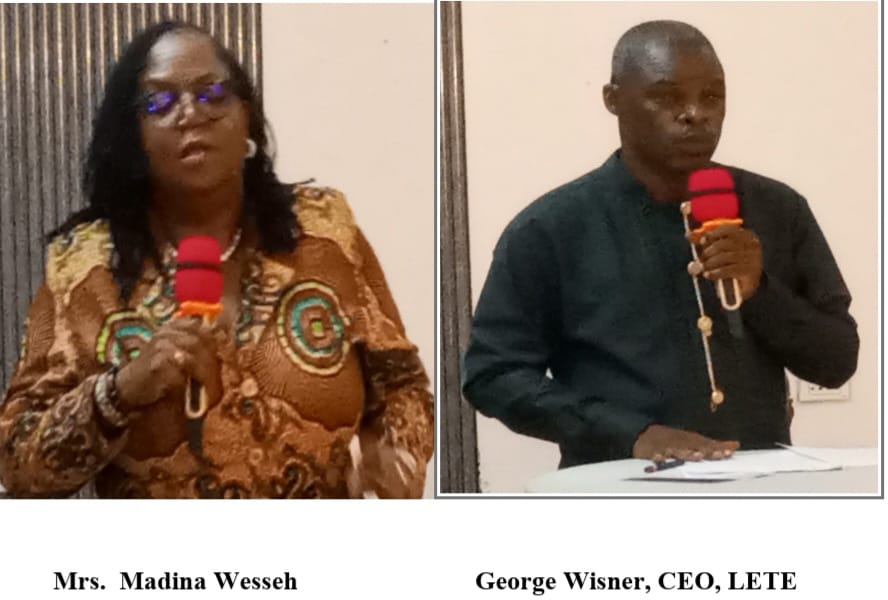Liberia, a nation rich in historical significance and natural beauty, is poised to leverage its untapped potential in eco-tourism. Two prominent figures, former Ambassador to the Mano River Union, Madina Wesseh, and LETE CEO, George Wisner, have championed this cause, emphasizing the critical role of eco-tourism in education and national development. Ambassador Wesseh has passionately advocated for integrating Liberia’s cultural heritage and historical landmarks into school curricula, emphasizing the importance of instilling a sense of national pride and awareness among the younger generation. She envisions a Liberia where students explore their own nation’s treasures, rather than seeking such knowledge abroad. This echoes a broader movement to prioritize local tourism and celebrate the unique narratives embedded within Liberia’s landscape.
Mr. Wisner, the driving force behind LETE, has spearheaded the “Martha M. Wright Heritage Tours for Schools,” a flagship initiative designed to immerse students in the nation’s diverse cultural and historical experiences. This program represents a concrete step towards realizing the vision of experiential learning, blending historical narratives, cultural immersion, and environmental appreciation into a cohesive educational journey. The tours offer students a unique opportunity to connect with their heritage, fostering a deeper understanding of their roots and the natural environment that shapes their identity. The initiative’s focus on school children reflects a strategic approach to cultivating a future generation of environmentally conscious citizens who value and protect their nation’s patrimony.
The call for incorporating cultural heritage and eco-tourism into education has resonated with key stakeholders in the education sector. Reverend Moneu Duoe, Deputy Executive Director at the National Commission on Higher Education, expressed enthusiastic support for LETE’s initiatives and pledged the Commission’s full cooperation in enhancing cultural learning for students. This institutional endorsement underscores the growing recognition of the value of integrating cultural heritage and eco-tourism into formal education frameworks. The collaborative spirit demonstrated by the Commission signifies a promising step towards developing a comprehensive educational strategy that incorporates Liberia’s rich cultural tapestry.
Ambassador Wesseh broadened her appeal for support to encompass concession companies operating within Liberia. Recognizing the potential impact of these companies on local communities and the environment, she urged them to invest in LETE’s initiative, thereby contributing to the educational and cultural enrichment of Liberia’s youth. This strategic call for corporate social responsibility aims to leverage the resources and influence of the private sector to further the goals of eco-tourism development and cultural preservation. By partnering with LETE, concession companies can play a vital role in promoting sustainable tourism practices and empowering local communities.
The launch of the “Martha M. Wright Heritage Tours for Schools” witnessed a strong display of community support, drawing prominent figures from various sectors. The presence of influential figures like Alexander B. Cummings, a prominent politician and statesman, alongside family members of Martha M. Wright, educational leaders, and students, underscores the broad-based commitment to advancing eco-tourism and cultural education throughout Liberia. This diverse coalition of stakeholders signifies the growing momentum behind this initiative, reflecting a collective desire to harness the potential of eco-tourism for national development and cultural preservation.
The convergence of government officials, educational leaders, and private sector stakeholders behind the promotion of eco-tourism reflects a growing national consensus on its importance. This shared vision highlights the potential of eco-tourism not only as an educational tool but also as a driver of sustainable economic development and environmental conservation. By investing in eco-tourism, Liberia can create economic opportunities for local communities, protect its natural resources, and foster a deeper appreciation for its rich cultural heritage. The collaborative efforts of LETE, government agencies, and private sector partners represent a promising pathway towards building a sustainable and prosperous future for Liberia, grounded in its unique cultural and natural assets. The “Martha M. Wright Heritage Tours for Schools” provides a compelling example of how experiential learning can empower younger generations to become stewards of their cultural heritage and the environment, ensuring the preservation of Liberia’s rich legacy for generations to come.


